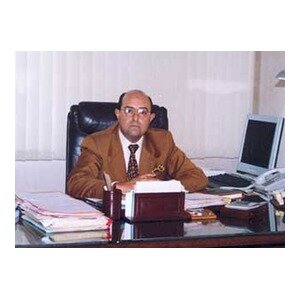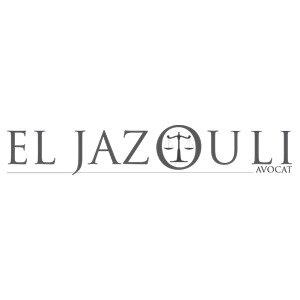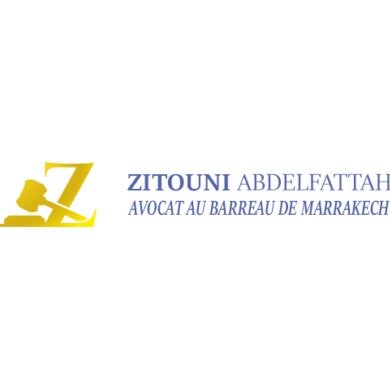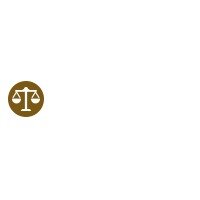Best ESG Advisory & Compliance Lawyers in Marrakesh
Share your needs with us, get contacted by law firms.
Free. Takes 2 min.
List of the best lawyers in Marrakesh, Morocco
About ESG Advisory & Compliance Law in Marrakesh, Morocco
ESG stands for Environmental, Social, and Governance - a set of standards for a company’s operations that socially conscious investors use to screen potential investments. ESG advisory and compliance law focuses on helping organizations in Marrakesh, Morocco operate in ways that are environmentally responsible, socially aware, and guided by strong governance policies. As global awareness and regulatory scrutiny around ESG issues rise, Moroccan businesses are increasingly required to adopt transparent ESG practices. Marrakech, being a major economic hub and a popular tourist destination, is seeing rapid growth in its private and public sectors’ sustainability commitments. Compliance with ESG standards is not only essential for reputation but can also be mandated by local or international regulations for those trading or partnering globally.
Why You May Need a Lawyer
Seeking legal assistance for ESG advisory and compliance in Marrakesh can be essential in several scenarios. Businesses may need to develop ESG strategies, draft policies, or implement protocols to meet regulatory requirements. Legal counsel can help navigate complex Moroccan and international laws, especially around environmental impact assessments, labor rights, anti-bribery regulations, and corporate governance. Lawyers also guide clients during ESG-related audits, reporting obligations, risk assessments, supplier due diligence, and stakeholder engagement. Legal support is invaluable when facing government inspections, handling ESG-related disputes, or responding to civil society or investor concerns about ESG practices.
Local Laws Overview
Morocco is steadily reinforcing its ESG legislative framework in line with its commitments to sustainable development and international treaties. Key aspects relevant to Marrakesh enterprises include:
- Environmental Regulations: Morocco enforces laws on waste management, water usage, renewable energy, emissions, and pollution, guided by Law 11-03 on the Protection and Enhancement of the Environment and Law 28-00 on Waste Management and Disposal. Businesses in Marrakesh must comply with these laws, especially when operating in protected areas or near heritage sites.
- Social Standards: The Moroccan Labor Code sets out workers’ rights, including health and safety, fair pay, and non-discrimination. There are also specific protections for vulnerable groups. Companies must observe these rules in their working conditions, hiring, and supply chains.
- Governance Requirements: Listed companies and public interest entities in Morocco fall under governance regulations that address board structures, transparency, anti-corruption, and compliance. Royal Decree 1-93-212 (regulating joint-stock companies) and anti-corruption laws are often cited in Marrakesh’s corporate sector.
- ESG Reporting: While ESG reporting is still voluntary for many, Morocco’s financial authorities encourage public companies and banks to adopt disclosure standards. Participation in sustainability indexes or green finance may require ESG data verification and regular reporting.
Frequently Asked Questions
What does ESG mean, and why is it important in Marrakesh?
ESG stands for Environmental, Social, and Governance. These are criteria businesses follow to operate responsibly. In Marrakesh, ESG is becoming crucial due to investor demand, tourism sector pressures, global supply chains, and new regulations focused on sustainable development.
Are ESG policies mandatory for all companies in Morocco?
Not all ESG elements are legally required for every business. However, environmental laws, labor regulations, and some governance obligations do apply. Many larger or international-facing businesses voluntarily adopt ESG practices to meet market expectations and future-proof their operations.
What is ESG reporting, and does my business need to do it?
ESG reporting involves disclosing a business’s performance on environmental, social, and governance issues. In Morocco, reporting is not generally compulsory but is recommended for listed companies, financial institutions, and those seeking international certifications or investment.
What are the penalties for failing to comply with ESG-related laws in Marrakesh?
Penalties can include fines, business license suspensions, civil liability, reputational damage, or even criminal charges, especially for serious environmental or labor violations. The severity depends on the specific law breached.
Do I need to consult with government agencies for ESG compliance?
Yes, in many cases you must coordinate with local or national agencies for permits, inspections, audits, or certifications related to environment, labor, or public safety. A lawyer can help identify the right authorities and streamline the process.
How can I ensure my supply chain is ESG-compliant?
Businesses should assess their suppliers, conduct due diligence, and incorporate ESG requirements into contracts. Legal advisors can help set criteria, vet suppliers, and develop remediation protocols for non-compliance.
Can my company face legal action from stakeholders over ESG matters?
Yes, stakeholders including employees, customers, investors, and NGOs may take legal action or file complaints if there are breaches of ESG obligations. Proactive legal compliance and best practices reduce such risks.
What is the role of sustainability consulting versus legal advisory in ESG?
Sustainability consultants focus on performance measurement and strategy, while legal advisors ensure activities meet all legal obligations, help mitigate risks, and represent clients in disputes or regulatory procedures.
Is ESG compliance different for companies operating in the tourism sector in Marrakesh?
Yes, businesses in the tourism sector face particular scrutiny regarding environmental impact, cultural heritage protection, ethical labor, and community relations owing to Marrakesh’s international profile. Legal obligations and stakeholder expectations can be higher.
What international standards impact ESG compliance in Morocco?
Morocco aligns with several international frameworks, including the Sustainable Development Goals (SDGs), Paris Climate Agreement, and conventions of the International Labour Organization. These standards shape the national approach to ESG, especially for companies with cross-border activities.
Additional Resources
Several organizations and bodies can assist those seeking information or legal help on ESG advisory and compliance in Marrakesh:
- Ministry of Energy Transition and Sustainable Development - for environmental legislation and permits
- Ministry of Economy and Finance - regarding corporate governance and reporting frameworks
- Moroccan Capital Market Authority (AMMC) - for ESG disclosure guidance for listed companies
- Moroccan Enterprise Confederation (CGEM) - for private sector support and responsible business resources
- Local law firms specializing in environmental and corporate law
- Non-governmental organizations active in sustainability and human rights
Next Steps
If you require legal advice or representation in ESG advisory and compliance in Marrakesh, start by:
- Identifying the specific area or issue where you need support, such as environmental permits, labor compliance, governance structure, or reporting obligations.
- Gathering all relevant business documents, permits, previous audits, and compliance records.
- Researching or seeking referrals for experienced law firms or attorneys in Marrakesh with expertise in ESG matters.
- Scheduling an initial consultation to discuss your needs, legal requirements, and possible compliance strategies.
- Maintaining ongoing communication with your legal advisor and staying updated on any changes in local and international ESG regulations that could impact your business.
Early legal engagement can save you time, reduce risks, and enhance your company’s reputation as a socially responsible and legally compliant enterprise in Marrakesh.
Lawzana helps you find the best lawyers and law firms in Marrakesh through a curated and pre-screened list of qualified legal professionals. Our platform offers rankings and detailed profiles of attorneys and law firms, allowing you to compare based on practice areas, including ESG Advisory & Compliance, experience, and client feedback.
Each profile includes a description of the firm's areas of practice, client reviews, team members and partners, year of establishment, spoken languages, office locations, contact information, social media presence, and any published articles or resources. Most firms on our platform speak English and are experienced in both local and international legal matters.
Get a quote from top-rated law firms in Marrakesh, Morocco — quickly, securely, and without unnecessary hassle.
Disclaimer:
The information provided on this page is for general informational purposes only and does not constitute legal advice. While we strive to ensure the accuracy and relevance of the content, legal information may change over time, and interpretations of the law can vary. You should always consult with a qualified legal professional for advice specific to your situation.
We disclaim all liability for actions taken or not taken based on the content of this page. If you believe any information is incorrect or outdated, please contact us, and we will review and update it where appropriate.















